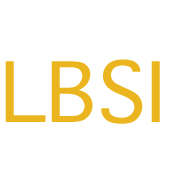
Everyone knows the job interview isn’t over until the thank you letter is written and sent. But sometimes it’s difficult to know exactly what to say. Then there’s the sending. Email or mail mail? Hand written or typed? This is your last impression. You want to make sure it’s a memorable one!
Essentially the thank you letter is like a feel good, post interview highlight reel. You get to quickly reiterate the skills/experiences you discussed during the interview. Bring up an interesting point of discussion you shared and say one more time just what a good fit you are for the job.
When to send it
Since you’ll be talking about things that happened during the interview you’ll want to ensure you send the letter within 24 hours so you are still fresh in the interviewer’s mind. The best way to ensure it arrives in good time is to send it via email. A way to make sure you stand out even more is to also follow up with a written thank you note. If you go that route make sure you touch on different points.
Notes on the note
A thank you note shouldn’t be long. Your first priority is thanking them for their time. After that find something of interest from the interview to highlight. An interesting point of discussion you had or something about your skills/experience that stands out for this particular job. Try to mention something that will help them remember your interview in particular. Reiterate how excited you are about the job and say again how much you would like the position. Ensure your contact information is part of the note.
Note: Even if you think the interview went badly it’s important to still send a note. It’s good practice for you and it will leave a professional impression with the interviewer.
If after the interview you decide this job really isn’t for you, send a note anyway. Tell the interviewer how much you enjoyed meeting them and hearing about the opportunity, but let them know it’s not for you.
Who to send the note to
Obviously you’re sending the thank you note to the person who interviewed you, but what if you were interviewed by numerous people? If it was a group interview, you can go ahead and send a thank you to the team. If you were individually interviewed by more than one person then each of them gets a separate note. Ensure you are collecting business cards as you go so you have the correct spellings and titles of each person!








